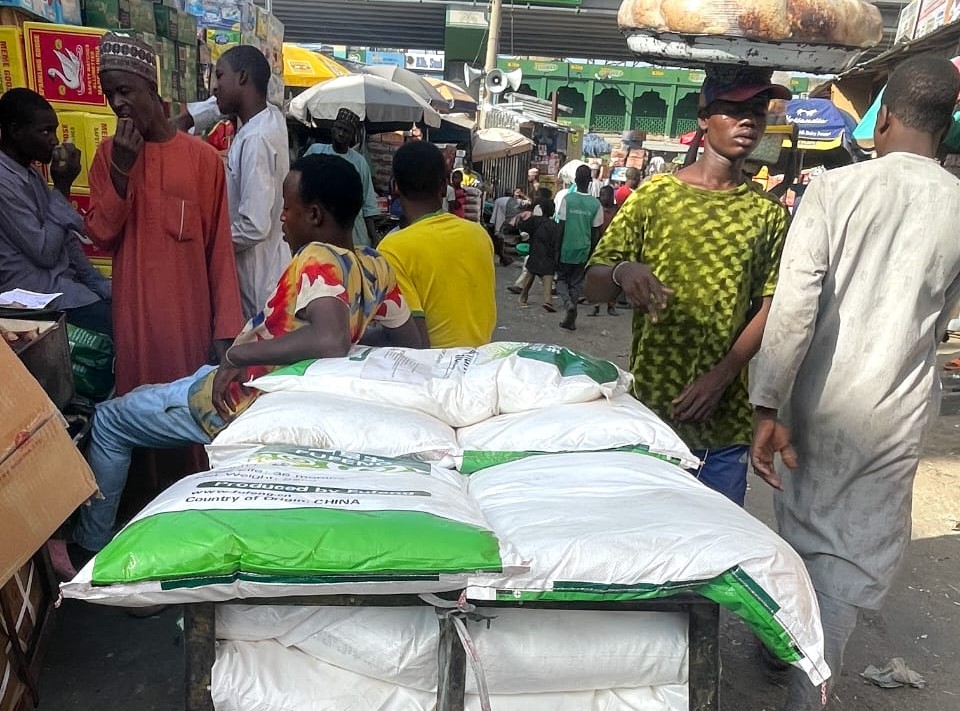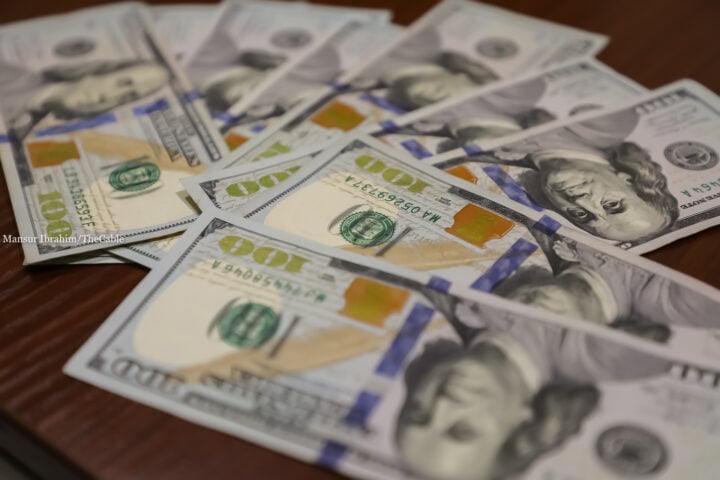Unregistered and raw white maggi openly displayed at Singer Market in Kano
There is a booming market for unauthorised and prohibited food items meant for industrial use in some markets in northern Nigeria. Despite repeated promises of action by regulatory agencies, including the National Agency for Food Drugs Administration and Control (NAFDAC) and the Federal Competition and Consumer Protection Commission (FCCPC), the sale of such items like monosodium glutamate (MSG), an addictive, is thriving in Kano and Katsina markets.
TheCable’s YEKEEN AKINWALE, who went undercover two years ago to expose the growing sale of the item, has revisited the Singer Market in Kano and Funtua Central Market in Katsina and found that the regulatory agencies are yet to enforce the ban on the sale of industrial foods in the open markets in the two states.
“If you came here yesterday, you would have seen over five trucks loaded with products to be offloaded in the market.” That was how Muhammad Mai Maggi, a major dealer of Monosodium Glutamate (MSG) seasoning popularly known as “white maggi” at Singer Market in Kano, described the surge in the open sale of the product, believed to be for industrial use.
White maggi is a widely circulated food seasoning in the Singer Market, Kano. Marketers do not perceive it as a prohibited item for open sale, and it remains readily available to consumers.
Advertisement
The willful defiance of marketers who supply unbranded and raw MSG products in Kano to the up north is troubling, and it seems the regulatory agencies are looking the other way.
When the National Agency for Food Drugs, Administration and Control (NAFDAC) seized 5,347 bags of MSG and other unregistered food products, after sealing a warehouse in Sokoto, little did many residents realise that the agency was only scratching the surface of what has become entrenched in many markets across the north-west region.
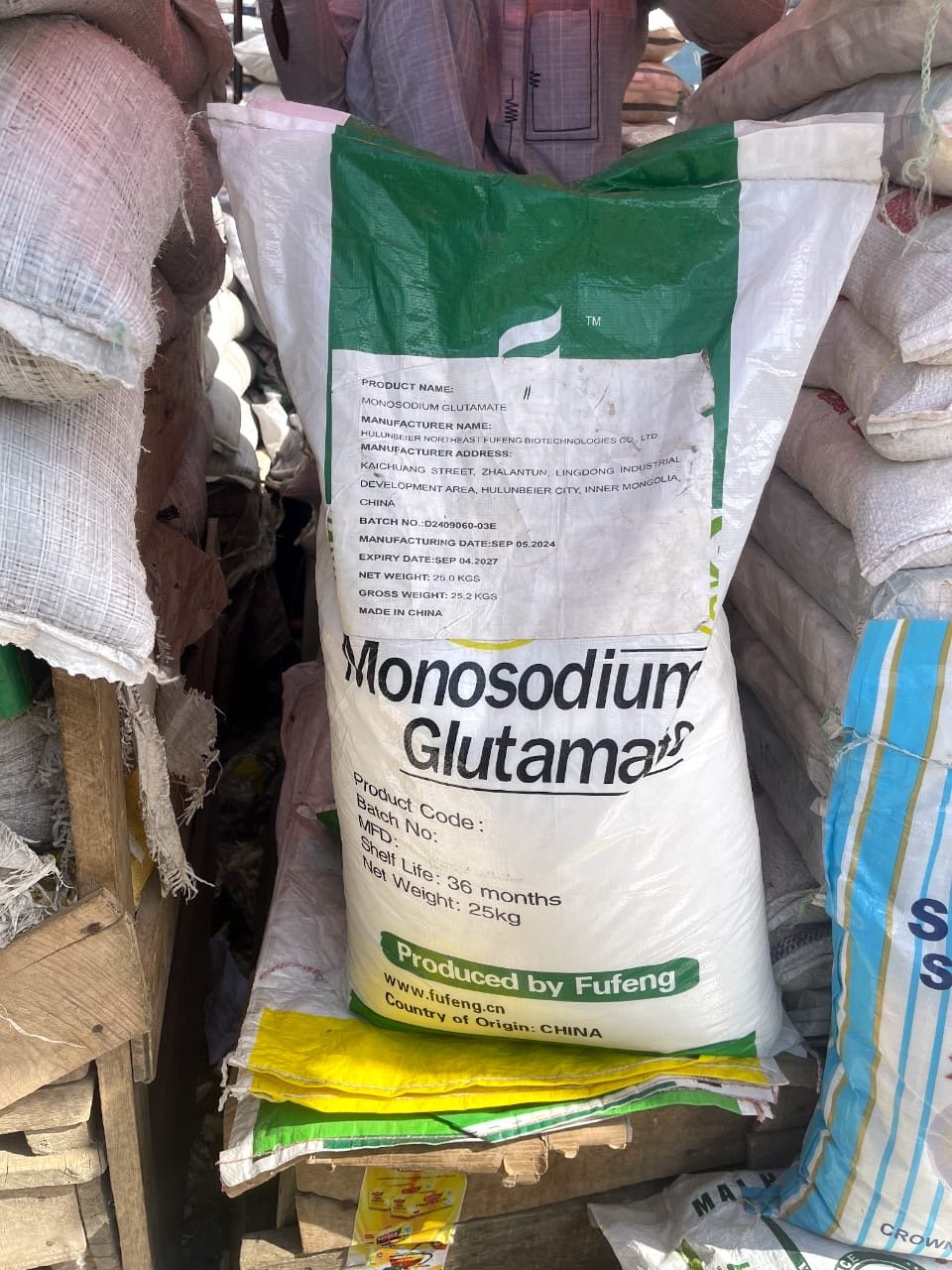
After TheCable’s report exposed the open sale of unauthorised food products at Kano’s Singer Market in 2023, both the Federal Competition and Consumer Protection Commission (FCCPC) and NAFDAC vowed to take action.
Advertisement
The FCCPC is charged with the responsibility of promoting fair business practices and safeguarding the interests of consumers.
At the time, Boladale Adeyinka, the FCCPC director of surveillance and investigation, said the commission would send its team out to get samples.
“It has come to the attention of the FCCPC, and we are sending our surveillance team to confirm and secure samples,” she said in a reply to inquiries by TheCable.
“Where there is a need for emergency intervention, we will provide urgent and interim interventions. We will also provide updates.”
Advertisement
Adeyinka said her office is responsible for market surveillance and investigation, which are “vital tools for protecting consumers when violations occur”.
Also, NAFDAC said it had directed an investigation into the open sale of unauthorised MSG.
Uche Sonny-Afoekelu, director of drug registration and regulatory affairs at NAFDAC, said the directorate of post-marketing surveillance has been instructed to investigate the development.
“It’s high time we gave proponents of misleading claims the treatment that they deserve,” she said.
Advertisement
“False and misleading claims make a mess of all the efforts put into the registration of a product.”
However, two years on, the sale and distribution of the product have been widespread beyond the Singer Market to the far north, serving as a depot to adjoining states in the region, according to findings by this reporter.
Advertisement
From Kano to Katsina, Zamfara and Sokoto, sales of prohibited industrial foods, including white maggi, are unhindered.
Traders said they have not seen any government officials or personnel stopping them from doing their business as far as the products are concerned.
Advertisement
More than 50 shops are in the market selling MSG, besides the numerous small traders who sell the product by the roadside. A 25kg bag of MSG is sold for N60,000, while a mudu (a local measuring unit) is sold for N6,000.
According to Mai Maggi, a trader, major MSG dealers in northern Nigeria operate in Singer Market. He revealed that they import MSG directly from China through Lagos, making significant profits due to high demand.
Advertisement
“As you can see, I am selling it, and we have never encountered any problems with any government agency. You can find it everywhere in this market,” Muhammad said.
“We have customers from Kaduna, Katsina, Sokoto, Zamfara, and many other northern states. We sell a 25kg bag for 60,000 naira, and smaller traders sell it in smaller quantities, with prices ranging from 7,000 naira down to 1,000 naira.”
He said the majority of the buyers include food vendors, fast food operators and members of the public for domestic consumption.
SECRET SALE OF CRUMBLED SEASONING CUBES
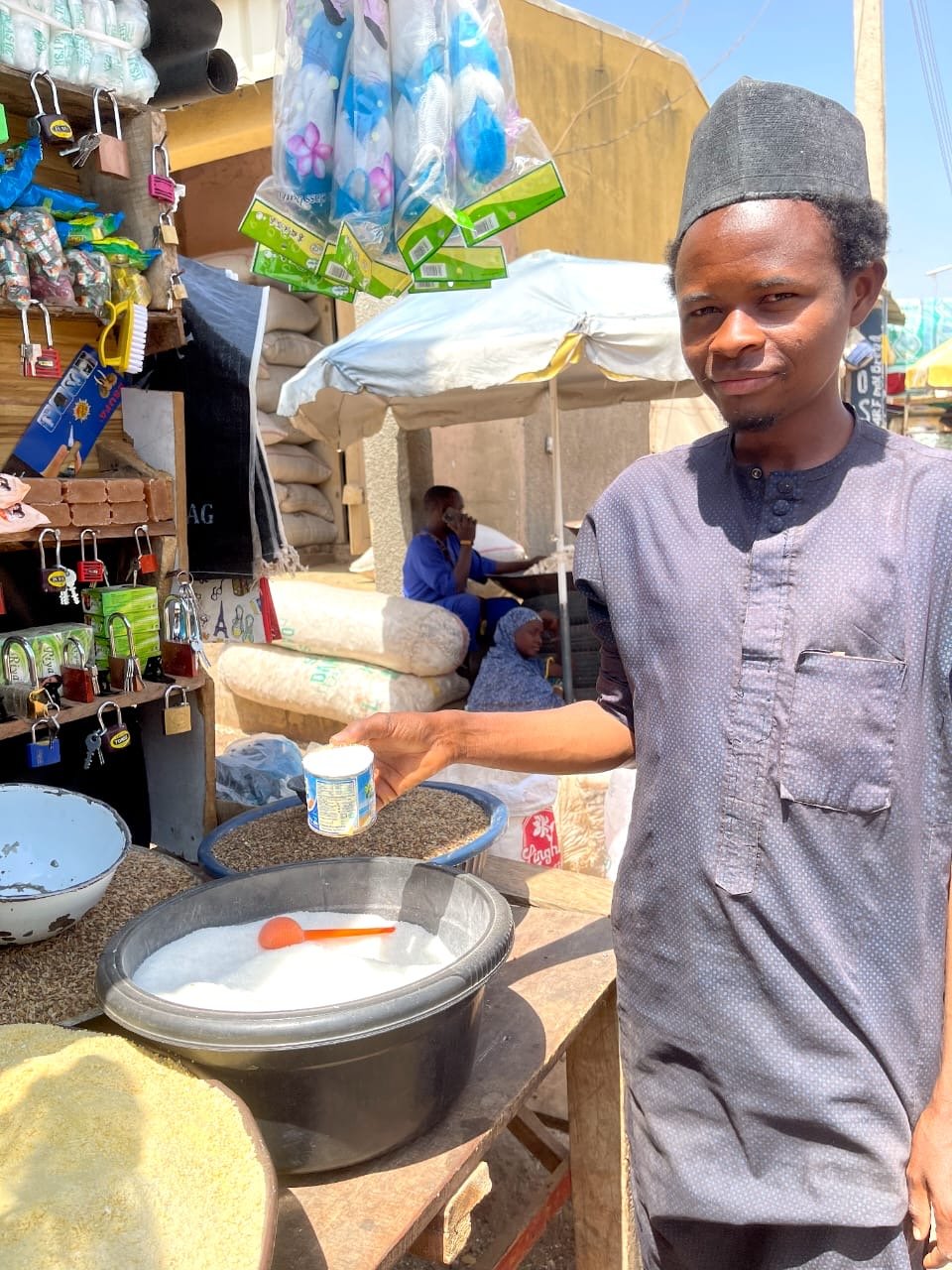
Despite the flagrant display of unregistered MSG across the market, the sale of crumbled seasoning cubes, known in Hausa as “garin maggi”, is not permitted for safety concerns. Crumbled seasoning cubes are considered waste from the manufacturers of cube food seasonings.
Traders hide it and only bring the products out when a customer requests them, raising questions on their legality and safety.
“There is no specific law in Kano that bans the open sale of crumbled Maggi,” a trader who declined to be named said.
However, the Kano state government has taken strong measures against traders involved in food adulteration, particularly at the Dawanau International Grains Market. The government issued warnings and threatened legal action against those engaged in such practices.
This reporter approached a trader selling crumbled seasoning to buy one mudu. He sold it for N7,500 and explained why it was hidden.
“You know, this seasoning is considered damaged by the company that produces it. Selling damaged goods is illegal, so we have to hide it,” he said.
“People prefer it because it is very cheap. Food vendors, in particular, are the majority of our customers. But white maggi is sold openly because it is not prohibited, and nobody will arrest you for selling it.”
‘WHY WE ARE BUYING WHITE MAGGI IN MUDU’
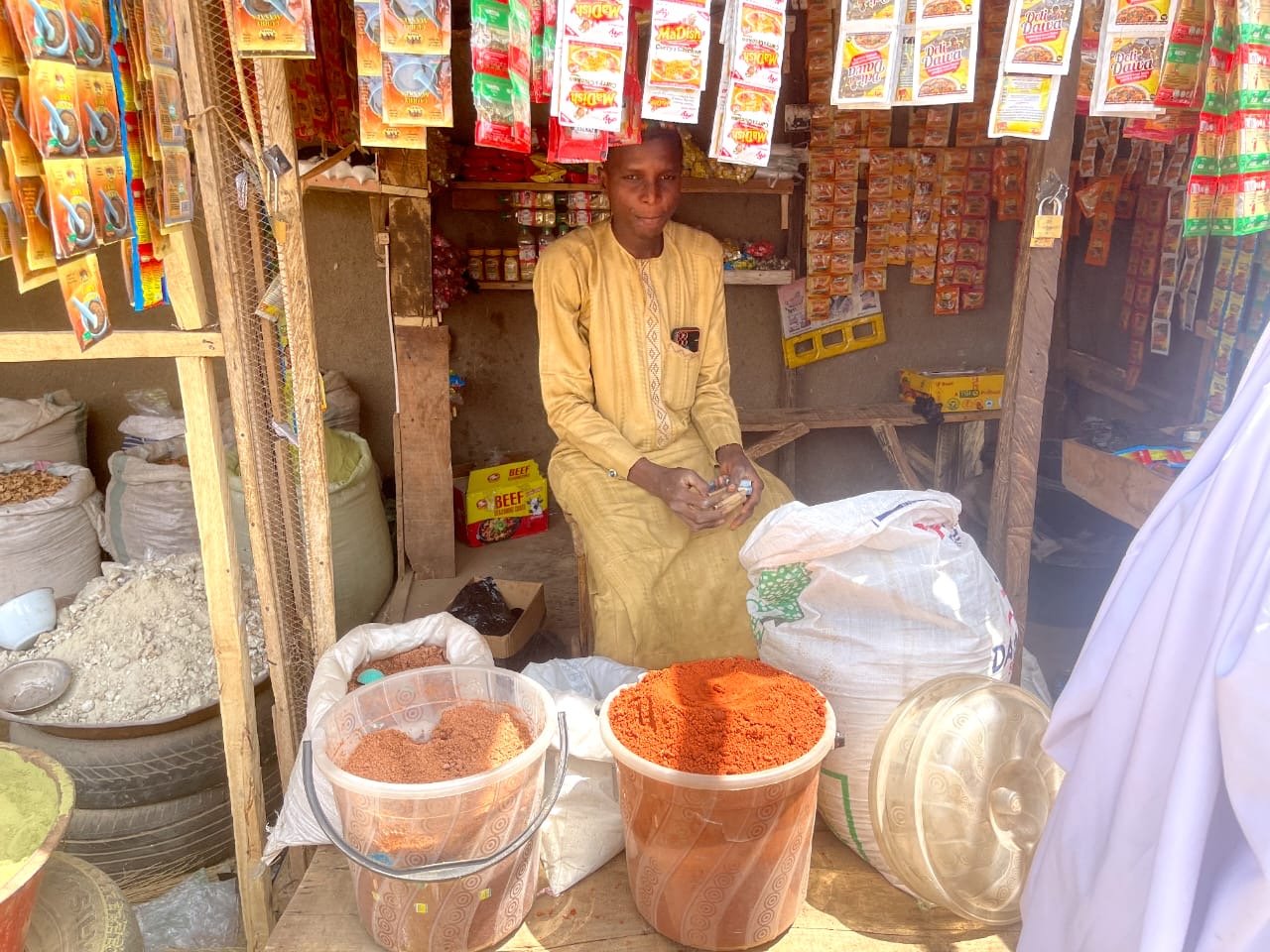
Many residents patronising the products are less bothered about whether they are for industrial use. What is important to the “addicted buyers” is the gratification they derive and affordability.
Economic conditions and rising inflation in Nigeria mean citizens are cutting costs by purchasing inferior goods and unbranded products like white maggi.
The affordability and availability of unbranded MSG make it an attractive choice for those struggling with the cost of living.
For many traders, both branded and unbranded MSG are displayed together. But many of them cash in on the strength of the branded products to push those without names.
Kamal Idris, a father of eight, noted that he started buying unbranded MSG to cut costs, saying the high cost of living in the country has affected him.
“Foods made with branded MSG are what I have been using in my house, but I now buy these rewrapped MSG due to the nation’s current economic situation and inflation which have gone beyond control,” Idris told this reporter at the Singer Market.
“It is much cheaper than regular seasoning cubes, and I can buy it in bulk, making it more economical.”
Idris said the rewrapped seasoning in smaller quantities is affordable to buy and is sold side-by-side with the branded ones.
Hauwa Ismaila, a food vendor in Kano, frequently buys raw MSG because it is affordable.
“The reason I use white maggi in my cooking is that it is very cheap, and my customers always enjoy what I prepare,” Ismaila said.
“In fact, today, as you can see, I am here at Singer Market to buy more seasoning and other foodstuffs for my business.”
Like Kamal, Hadiza Nakowa, a housewife, does not make a meal at home without adding some portions of MSG, regardless of the brand.
“Honestly, it is very difficult for me to cook a meal in my house without adding white maggi,” Nakowa said. “It has become a necessary ingredient in my kitchen because it makes the food more delicious. My family and I have been using it for years.”
She said the government or its agencies would have stopped the sale of such unbranded MSG in the open market if truly they were meant for industrial use.
Health experts warned that unregulated consumption of industrial MSG can be harmful to human health.
Goke Akinrogunde, a medical practitioner, said excess consumption of the unbranded product can trigger high blood pressure.
“Yes, you can say they are cheaper, but what about quality and food safety concerns? In the long run, it can be harmful to human health because it has not been certified and has more sodium in it and can lead to high blood pressure,” Akinrogunde said.
LIKE SINGER, LIKE FUNTUA CENTRAL MARKET

There are no signs that the open display of crumbled seasoning cubes or unbranded MSG is not allowed once you enter the Funtua Central Market. Funtua is the second largest city in Katsina and has an estimated 570,110 population, according to a 2016 estimate.
Consumers were buying their seasonings in small quantities because, at the market, a measure of mudu costs N8,000.
Upon enquiry from traders, it was confirmed that they source their supply from Singer Market in Kano. Abdul Rashid Abdulrauf, a trader who stocked the products in his store, explained why people buy white maggi and crumbled seasoning.
“I sell both MSG and crumbled seasoning. We buy them from dealers who purchase in large quantities and then resell them in smaller portions to people who cannot afford packaged seasoning cubes,” Abdulrauf said.
“People have different financial capabilities. Some can buy in bulk, while others cannot. So, we sell in smaller quantities at affordable prices.”
“This MSG is raw. We buy it in 25kg sacks and then resell it in smaller portions, from mudus down, at an affordable price.”
“Honestly, people buy it because it is cheap. The packaged ones from recognised companies are more expensive, so people prefer this one.”
Another trader, Yusuf Sani Mai Sikile, who owns a shop in Alhaji Idris Modun Market at Funtua Market, explained why he sells MSG.
“I sell MSG because people demand it. In the market, you sell what customers want. Some don’t buy it, but the majority do,” he said.
What played out in Funtua is that many knew the sale of industrial products in the open market was not allowed. Many of them believed the sale of the product was prohibited for health reasons.
Mai Sikile admitted to knowing that selling unregistered MSG in an open market is prohibited due to health concerns.
“Everything consumed in excess is harmful. We don’t see this as a problem; it’s the customer’s decision,” he added.
“Here in Funtua, we sell one mudu for N6,500 to N7,000, while a 25kg bag sells for N62,000 to N63,000. There are about 20 shops in this market selling white maggi.”
‘MANUFACTURERS, SUPPLIERS DIVERTING PRODUCTS TO OPEN MARKETS’
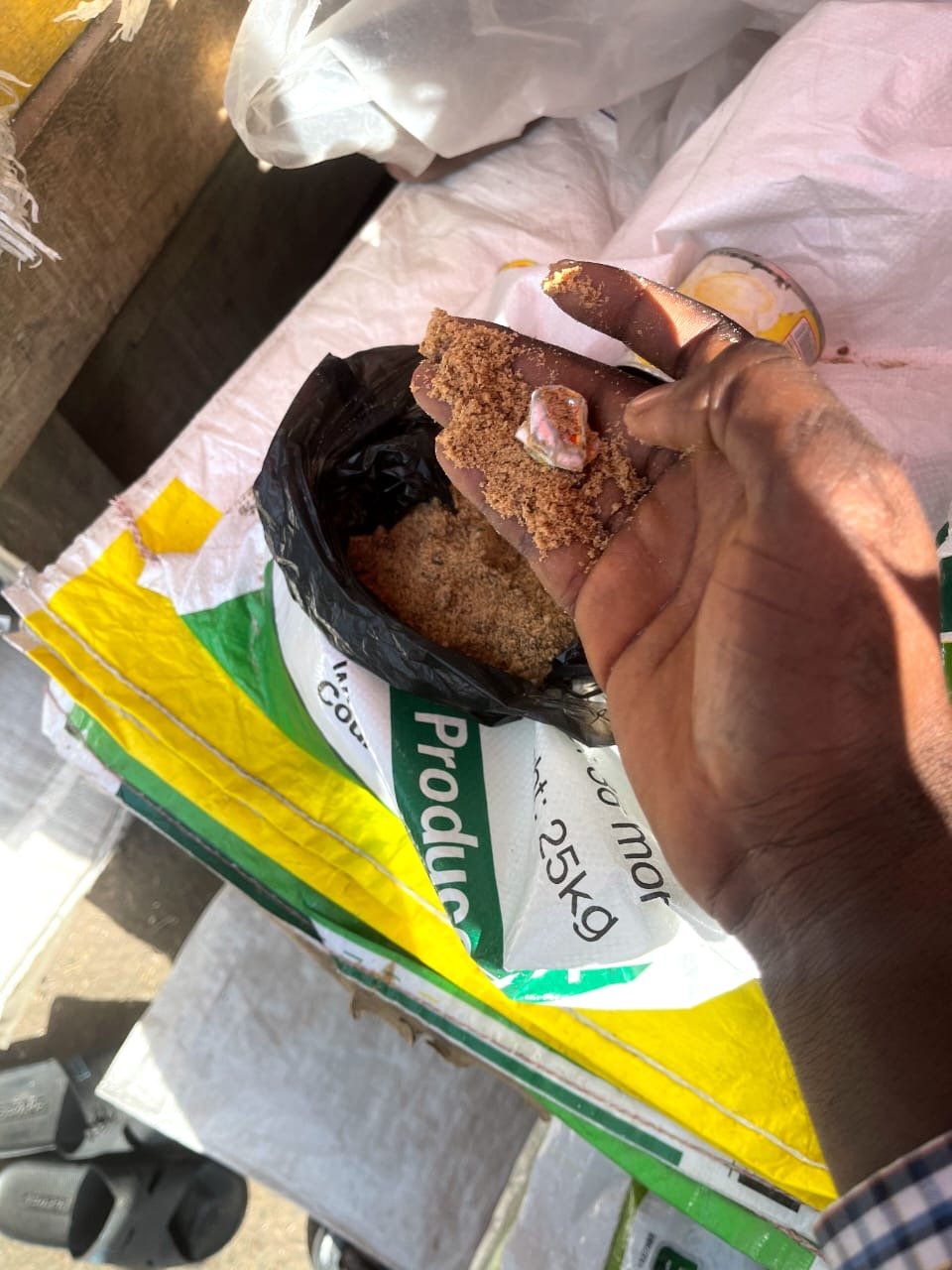
While it is known as a popular food seasoning among locals, MSG, a sodium salt of glutamic acid, has a number of industrial uses.
According to a report by FoodChem, Monosodium Glutamate is used in a wide variety of industries, including food production, beverage, pharmaceutical, agriculture/animal feed, and various other industries.
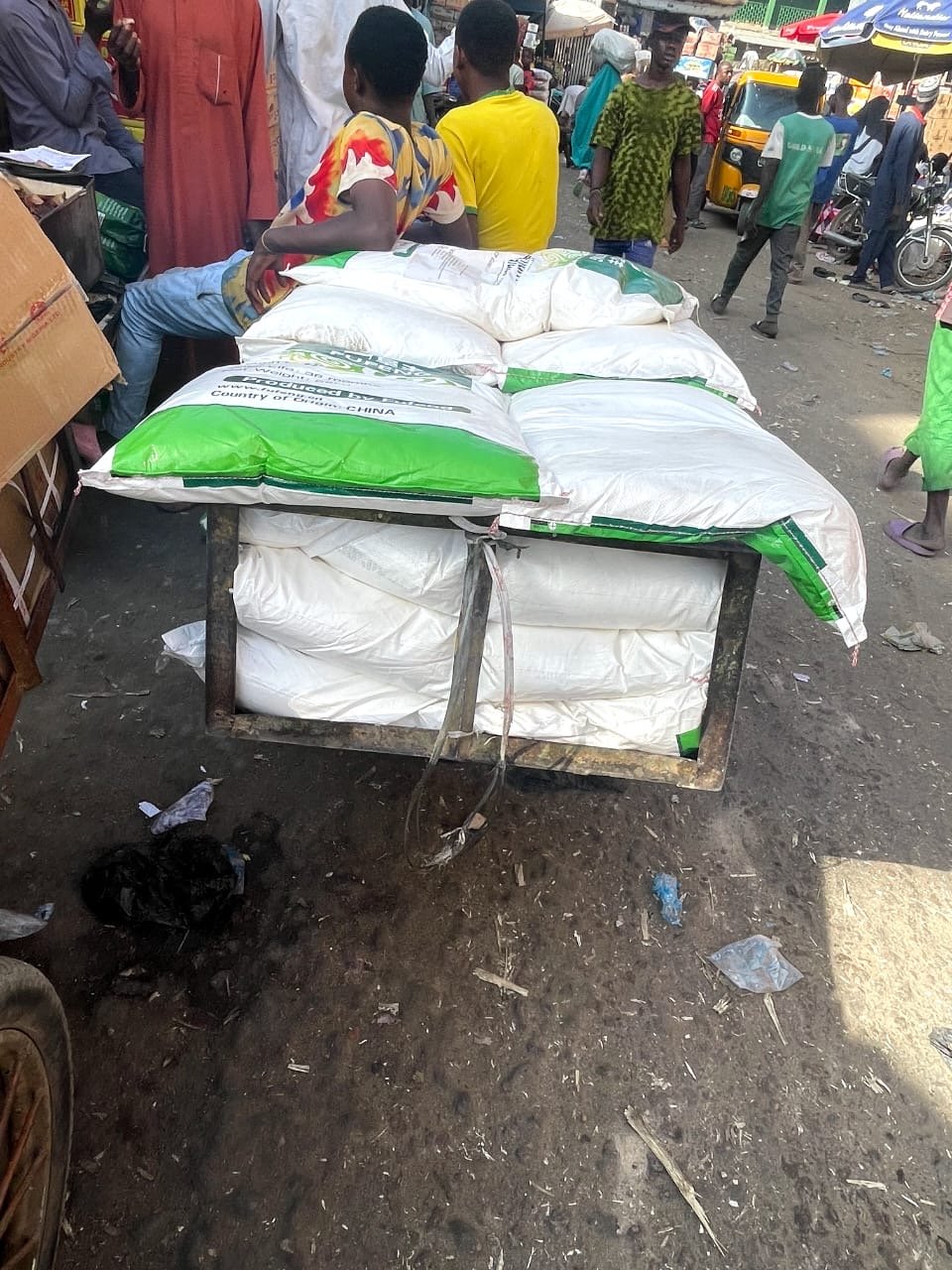
The sale of unbranded and unregistered MSG seasoning in the open market is growing — though their use is restricted to industrial — they are being purchased for domestic cooking by unsuspecting buyers.
Lack of government oversight has paved the way for the spread of the business.
In December 2024, Mojisola Adeyeye, the director-general of NAFDAC, linked the presence of industrial foods in the open market to the activities of manufacturers who import more than they require.
Speaking at the end-of-the-year NAFDAC stakeholders’ forum in Lagos, Adeyeye said the products enter the country “because companies have applied to use them in the manufacture of their NAFDAC registered products”.
Though she said the practice is “unacceptable”, the agency has not clamped down on suppliers and manufacturers involved in this unwholesome practice.
She said NAFDAC, through an interaction with some manufacturers, understands that sometimes “companies request far more than they require, because they feel that the quantities are going to be cut by the agency”.
The NAFDAC DG said the agency would look at the process of issuing permits for bulk raw materials critically.
“We don’t want to just see your stock cards; we want to know what you imported in the previous year,” the NAFDAC DG said.
“We want to know what you used because there are some calculations that we need to make.”
FCCPC MAKES FRESH PROMISE TO TRACK IDENTIFIED MARKETS

However, the FCCPC has issued a fresh commitment to address the open sales of industrial products. In a response to enquiries sent by TheCable, the commission said the “identified markets have been noted”.
“An appropriate intelligence and enforcement mechanism of the commission will be activated in order to swiftly address these anomalies,” the FCCPC said in a message to TheCable.
“Be sure that the commission is committed to ensuring public safety, interest and welfare of the consumers are adequately protected.”
Food safety starts with awareness and informed choices. Protect your health by choosing regulated and properly labeled food products.
Add a comment
